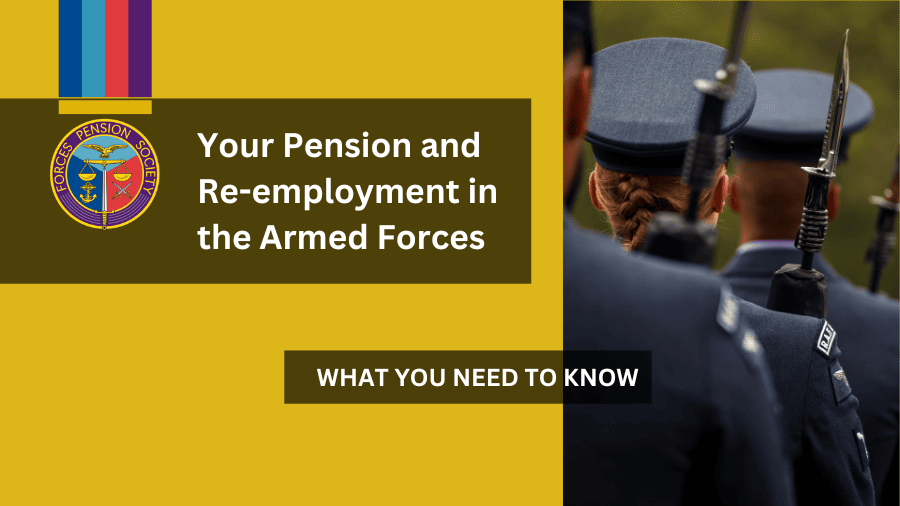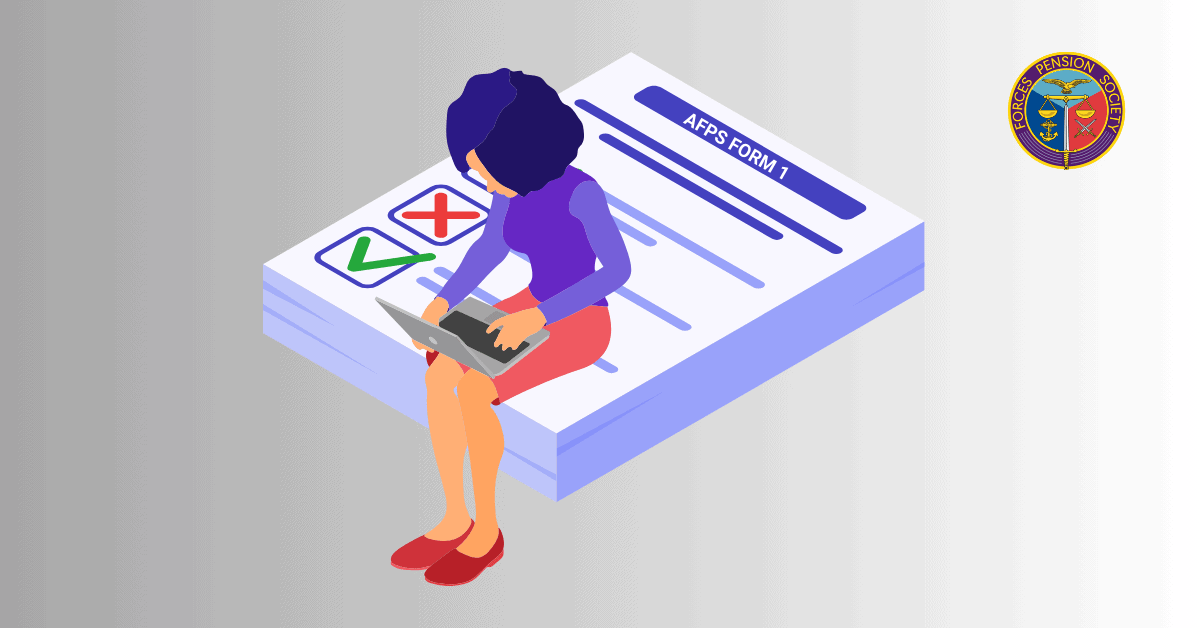
For many people the prospect of re-joining the Armed Forces after retiring from their current or previous period of service can be attractive, but there are considerations in terms of how this might affect their pension benefits. In this article I explain how those who have retired from a period of regular service with pension benefits in payment can expect those benefits to be affected by re-joining the Armed Forces.
Firstly, it is important to understand which pension scheme(s) you are a member of as the pension benefits under each scheme are affected differently by re-joining. The detail of your pension benefits and the respective schemes are contained in the final award notification that you should have received from Veterans UK when you left regular service.
Secondly, it is important to understand the type of service you are re-joining as it will affect your pension benefits in different ways. I have covered some of the most common scenarios below.
What happens if I join FTRS?
For those considering joining Full Time Reserve Service (FTRS), there are significant factors to consider. If you are in receipt of an AFPS 75 immediate pension, your pension may be abated (reduced) when you join FTRS. If your AFPS 75 pension added to your new FTRS salary exceeds your final regular salary, then the pension will be abated until the combined income equals the final regular salary. This rule also applies when re-joining regular service.
Any lump sum received from AFPS 75 is retained and there is no requirement to leave a gap between leaving regular service and joining FTRS. If there is a gap between the periods of service, the final regular salary will be adjusted for inflationary increases before the abatement calculation is made.
It is common for those in receipt of an AFPS 75 pension to opt for Resettlement Commutation in order to create an increased tax-free lump sum at discharge. If this is the case, your pension will have been reduced until you reach age 55 and we refer to this as the Resettlement Commutation repayment. If you were to re-join FTRS during this period, the above abatement calculation will be based on your full pension (i.e. before the Resettlement Commutation repayment). The Resettlement Commutation repayment amount will be taken from your abated pension or the FTRS salary in cases where the pension is fully abated.
The most significant impact of joining FTRS is felt by those in receipt of an Early Departure Payment (EDP) from AFPS 05. Undertaking FTRS will result in the annual EDP income from this scheme being stopped completely and it will only resume following retirement from the period in FTRS. The AFPS 05 EDP lump sum received may also need to be re-paid depending on how long the gap was between the periods of service. The gap between leaving regular service and joining FTRS will need to be long enough to have ‘earned’ the lump sum based on the final regular salary. For example, if the AFPS 05 EDP lump sum was £20,000, and the final regular salary had been £40,000, the gap between the periods of service would need to be 6 months in order to retain the lump sum.
Very often, those in receipt of either an AFPS 75 pension or AFPS 05 EDP will also be in receipt of an EDP benefit from AFPS 15. The good news is that the AFPS 15 EDP is not affected by joining FTRS. The EDP lump sum will be retained in its entirety and the annual AFPS15 EDP income will remain in full payment, even if the AFPS 75 pension or the AFPS 05 EDP are affected.
It is important to distinguish between pension and EDP when joining FTRS. If you have left regular service with an AFPS 05 pension in payment rather than EDP, then you should expect this to be subject to the same abatement rules as apply to the AFPS 75 pension.
If you retire from regular service with an AFPS 15 pension in payment and join FTRS, the rules are slightly different again. In this scenario the AFPS 15 pension is not subject to abatement. However, you would need to ensure there is a gap of at least 28 days between leaving regular service and joining FTRS to continue receiving the AFPS 15 pension. If the gap is less than 28 days, you should expect the AFPS 15 pension to stop and any payments received in that time would need to be repaid, including any lump sum that you have received from that pension scheme.
What happens if I re-join the Regular Armed Forces?
For personnel who decide to re-join regular service there are considerations which are, again, largely dependent on which pension scheme benefits you are in receipt of.
Anyone re-joining regular service now will do so as a member of AFPS 15 and you will continue accruing pension benefits under that scheme for as long as you remain serving.
Those re-joining regular service with an AFPS 75 pension in payment should expect their pension benefits from that scheme to be affected in the same way as if they were joining FTRS, as described previously.
If you are a member of AFPS 05 and in receipt of an AFPS 05 EDP, you should expect the EDP payments to cease when you re-join regular service. However, when you leave the second period of regular service, your AFPS 05 EDP would be reinstated at a revised rate that takes into account the second period of regular service if you leave before age 55. If you remain in the second period of service until at least 55 years of age, then you should expect to receive an AFPS 05 pension when you leave.
If you are re-joining regular service whilst in receipt of an AFPS 15 EDP you have some options. The first option is to retain the AFPS 15 EDP. If you do this, the annual income will remain in payment and you will also retain the AFPS 15 EDP lump sum. Whilst the new period of service will see you accrue pension benefits in AFPS 15, the EDP will not be readjusted when you retire again.
The second option is to request that the AFPS 15 EDP income stops. If you do this, you will also need to repay the AFPS 15 EDP lump sum that you received. The benefit of this option is that your AFPS 15 EDP will be readjusted when you leave again to take into account the increased length of service, but only if you are under 60 years of age. If you leave the second period of service at age 60 or over, your AFPS 15 pension will come into payment at that point rather than waiting until State Pension Age.
Whilst this article details the more common scenarios, it may not cover your particular circumstances. Members of the Forces Pension Society can of course request a bespoke explanation from the pension team of what they can expect to happen to their pension benefits if they re-join the Armed Forces.
Andy Keen, Pension Consultant
19 January 2024 – Please note pensions information frequently changes, and news items/articles may be easily superseded. Please check the date for the latest.




